Unveiling the Dynamic Dimensions of Innovation in Allah's Divine Attributes
To establish a foundational understanding of innovation within the framework of Islamic perspective, we begin by examining four Quranic verses (āyāt) that reveal various attributes of Allah and convey implications for the features of innovation. These verses serve as the bedrock upon which we will build our discourse on the relationship between faith, creativity, and progress
- Ibdāʿ: Innovation
بَدِيعُ ٱلسَّمَٰوَٰتِ وَٱلْأَرْضِ : {Allah is the originator and innovator (badīʿ: بديع) of the heavens and the earth} (al-Baqarah: 117). Everything in heaven and earth celebrates the glory of God, as they are the creatures of God's will and design. The difference between khalaqa (created) and badaʿa (originated) is that the former means bringing something to existence while the latter refers to the very primal origin and creation of an unprecedented thing. Badaʿa is more specific than khalaqa because the former conveys the meanings of originality, novelty, unprecedentedness and freshness. At the same time, faṭara, like badaʿa, implies the creation of a thing out of nothing with no pre-existing similitude. Faṭara indicates the manufacture of primaeval matter to which further processes are in need to get into a serviceable form. Jaʿala means made (e.g., new shapes, forms and new dispositions). Badaʿa transfers more meaning than Jaʿala as well.
The above words are used in Quran associating with Allah (ﷻ), of which examples are given below:
- Khalaqa: {Surely, We have created everything in perfect estimation (destiny and purpose} (al-Qamar: 49).
- Jaʿala: {And Allah has made the earth for you as a carpet (spread out)} (Nūḥ: 19). Qur'anic term Jaʿala indicates a stage subsequent to Khalaqa. The difference between them, as mentioned by al-Alūsī in his tafsir, is that Khalaqa means creation and origination, while Jaʿala refers to composition and innovation.[i]
- Faṭara: {the Originator of the heavens and the earth} (al-Anʿām: 14).
- Badaʿa: {Allah is the originator and innovator of the heavens and the earth} (al-Baqarah: 117).
These Quranic āyāt substantiate that innovation is a key attribute of Almighty Allah.
- Khalq: Artistry/Creation
فَتَبَارَكَ اللَّهُ أَحْسَنُ الْخَالِقِين {Allah is the best of artisans!} {So Blessed is Allah, the Best of Creators} (al-Mu’minun: 14). As al-Ṭabarī explained that the Arabs used to apply the designation "creator" to every artisan (ṣāniʿ). “Since God is the only Creator in the real, primary sense of this word, the phrase aḥsan al-khāliqīn must be understood in this secondary sense of the term khāliq”.[ii] Referring to this āyat, Muhammad Iqbal (1877-1938) commented that “human beings are creators too – not as good as God but creators nevertheless”.[iii] For him, this āyat propels humans to be creative, productive and innovative in fulfilling their duty as Khalīfah (vicegerent) and ‘Abd (servant).
Allah (ﷻ) loves humans to be innovators and producers of originality in discharging the duties entrusted with amānah. The amānah entails huge responsibility as seen in the āyat {We did indeed offer the Trust to the Heavens and the Earth and the Mountains: but they refused to undertake it being afraid thereof: but man undertook it he was indeed unjust and foolish} (al-Aḥzāb: 72). Allah (ﷻ)gave the human being the power of disposition, with the rule that he has to use it according to God’s wish. This trust is about the choice between good and evil, which the heavens, the earth, and the mountains, i.e., other creatures of Allah (ﷻ), besides man, refused to undertake, but they chose submission of their will entirely to Allah's will. Allah (ﷻ) placed a high destiny for human beings, who can consequently rise above the angels or go lower than beasts based on their choices. To be successful in this race, man has to use the divine gift of intellect, the power of rational exertion, various forms of innovative strategies and indeed utmost creativity.
- Itqān: Precision/perfection
صُنْعَ اللَّهِ الَّذِي أَتْقَنَ كُلَّ شَيْءٍ {the artistry of Allah Who disposes of all things in perfect order} (al-Naml: 88). The close translation of itqān is precision and perfection. Itqān means arranging things scientifically and artistically to obtain the perfect results.[iv] Allah (ﷻ) has ordered all things to perfection. That is the design of Allah, Who has perfected everything. Allah (ﷻ) loves this attribute in his servants. The Messenger ﷺ said: "Allah loves to see one's job done at the level of itqān" (Sahih Muslim 1976). The acquisition and assumption of the virtues of Allah (ﷻ) will facilitate exploring the pristine human nature and discharging his duties in an uncorrupted way. Innovation and perfection are two interlinked qualities.
- Iḥsān: Soulful Excellence
وَأَحْسِن كَمَآ أَحْسَنَ ٱللَّهُ إِلَيْكَ: {Do iḥsān (good) to others as Allah did iḥsān to you} (al-Qaṣaṣ: 77). Likewise, {Allah commands doing justice, doing good to others, and giving to near relatives, and He forbids indecency, wickedness, and rebellion: He admonishes you so that you may take heed.} (al-Naḥl: 90). These Quranic āyāt underpin the concern of Sharīʿah for being just, altruistic and helpful for others. It forms the foundation of Sharīʿah, as this āyat was projected as the most comprehensive Quranic āyat in terms of explaining ḥalāl (lawful), ḥarām (unlawful), amr (command) and nahy (prohibition) by ʿAbd Allāh bin Masʿud, the famous Companion of the Prophet (ﷺ).
Iḥsān as a term means “to worship Allah as if you see Allah, for even if you do not see Him, He sees you” (al-Bukhārī & Muslim). It is a persistent cause for the improvement of inward, which by default generates excellence outward. That is why I prefer to translate iḥsān as ‘soulful excellence’. It is just the opposite of “excellence without a soul”.[v] The Messenger ﷺ said: “Verily, Allah has enjoined excellence (iḥsān) concerning everything” (Ṣaḥīḥ Muslim: 1955). Iḥsān, as bricks of excellence, is needed for innovative initiatives in and out to meet the standards of Sharīʿah.
The above discussion confirms that innovative ideas are well-rooted in Islam and highlighted as meritorious attributes in Islamic teachings. It also substantiates the significance and interrelationship between the concepts of innovation, originality, precision, perfection, and excellence.
(This article is part of a research work which was originally published on AWQAF Journal, (44). pp. 14-52. ISSN 1609-4662, published from Kuwait).
Endnotes
[i] Muḥammad Shukrī al-Alūsī, Rūḥ al-Maʿānī, ( Egypt: Idārat al-Ṭibāʿah al-Munīriyyah, 2008).
[ii] Al-Ṭabarī, Tafsīr al-Tabarī¸ (Mu’assasat al-Risālah, 2014). Asad, Quran Translation, https://www.alim.org/quran/compare/surah/23/14/ .
[iii] Popp, S.. Muhammad Iqbal – Reconstructing Islam along Occidental Lines of Thought, Interdisciplinary Journal for Religion and Transformation in Contemporary Society, 5(1) (2019), 201-229. doi: https://doi.org/10.30965/23642807-00501011
[iv] Ismail, Ahmad Faris and Shuriye, Abdi Omar and Adam, Ibrahim A. H. (2009) The concept of Itqan and its role in Muslim professional life. In: Ethics of engineering education. (Kuala Lumpur: IIUM Press, 2009), pp. 99-105.
[v] Excellence Without A Soul: How a Great University Forgot Education (reissued as Excellence Without a Soul: Does Liberal Education Have a Future?) is a 2006 book by Harry R. Lewis (Gordon McKay Professor of Computer Science at Harvard University's School of Engineering and Applied Sciences) in which he examines the state of American higher education, particularly referencing to Harvard.
About the author
Sayyed Mohamed Muhsin, PhD is Assistant Professor of Islamic jurisprudence at the International Islamic University Malaysia (IIUM), Kuala Lumpur. He also serves as Editor-in-Chief of Islamonweb-English (https://en.islamonweb.net/)
Disclaimer
The views expressed in this article are the author’s own and do not necessarily mirror Islamonweb’s editorial stance.

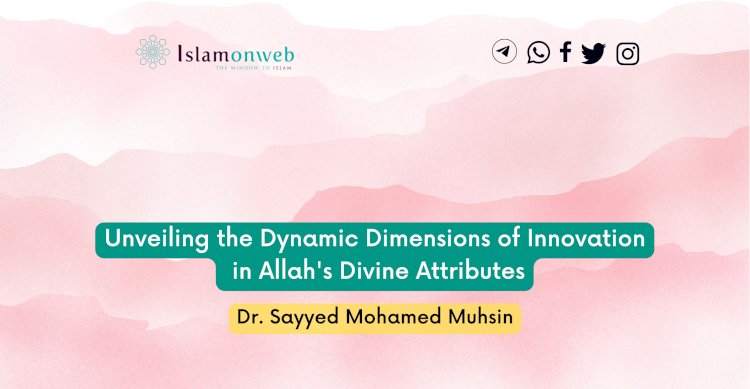




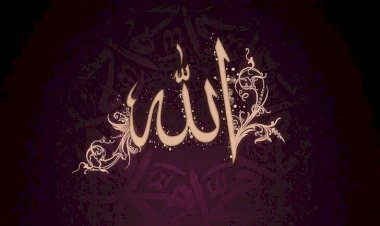

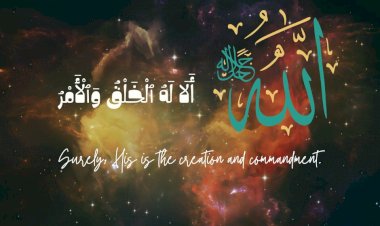
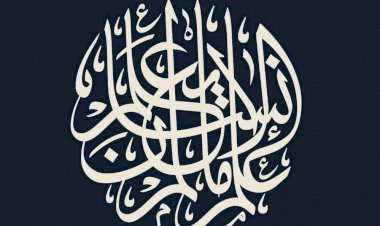
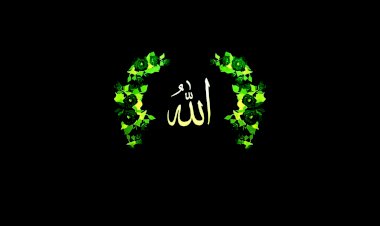














Leave A Comment